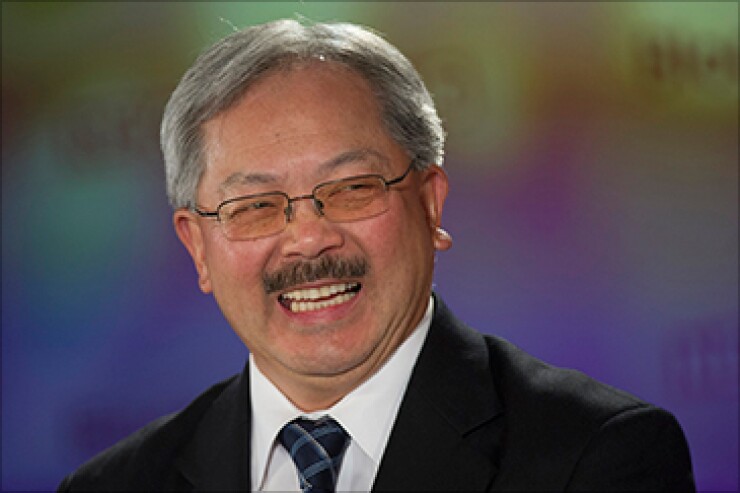
PHOENIX - San Francisco's financial position has improved since the publication of its five-year plan in December, though pension funding issues lurk in the background.
The update to the plan, released Thursday, shows that the city's two year cumulative deficit has fallen by $114.8 million from the projection released in December, and is now thought to be $287.6 million. But the trade-off for the short-term deficit relief is a bigger deficit and more uncertainty further down the road, city officials said.
"In order to protect and sustain the significant investments our city has made over the past five years, it is essential that we show fiscal discipline during this time of great uncertainty," said Mayor Ed Lee. "The presidential administration is proposing severe cuts to critical services, and while none of these proposals are concrete, we have to prepare for the future by considering tough tradeoffs. I know that we will work together as a city to protect our residents."
Total general fund expenditures are projected to grow by $1.4 billion over the next five years, which represents an increase of 30% over budgeted spending levels for the current fiscal year, the city said. But general fund revenues are projected to grow by only $541.3 million over the same period, resulting in the projected cost of city services outpacing revenue growth. If the city does not take corrective action, officials said, the projected gap between revenues and expenditures will rise to $907.4 million from FY 2017-18 to FY 2021-22.
The update comes as some observers question the city's pension outlook.
The city's five-year plan cites rising pension costs as the largest factor in rising city employee costs, but has not reduced its investment return assumptions from 7.5% as many other large public pension plans have done in recent months. David Crane, a lecturer on public policy at Stanford University and advocate of policy changes to fully fund public pensions, described San Francisco's approach as unrealistic in a recent
"When public pension fund investment return assumptions aren't met, citizens suffer cuts in services, higher taxes and fees, or both," Crane wrote. "With compound interest, every dollar by which the pension fund falls short of its assumption translates into three dollars of additional cost for citizens."
The mayor is responsible for closing the two year, $287.6 million budget gap by June 1.





